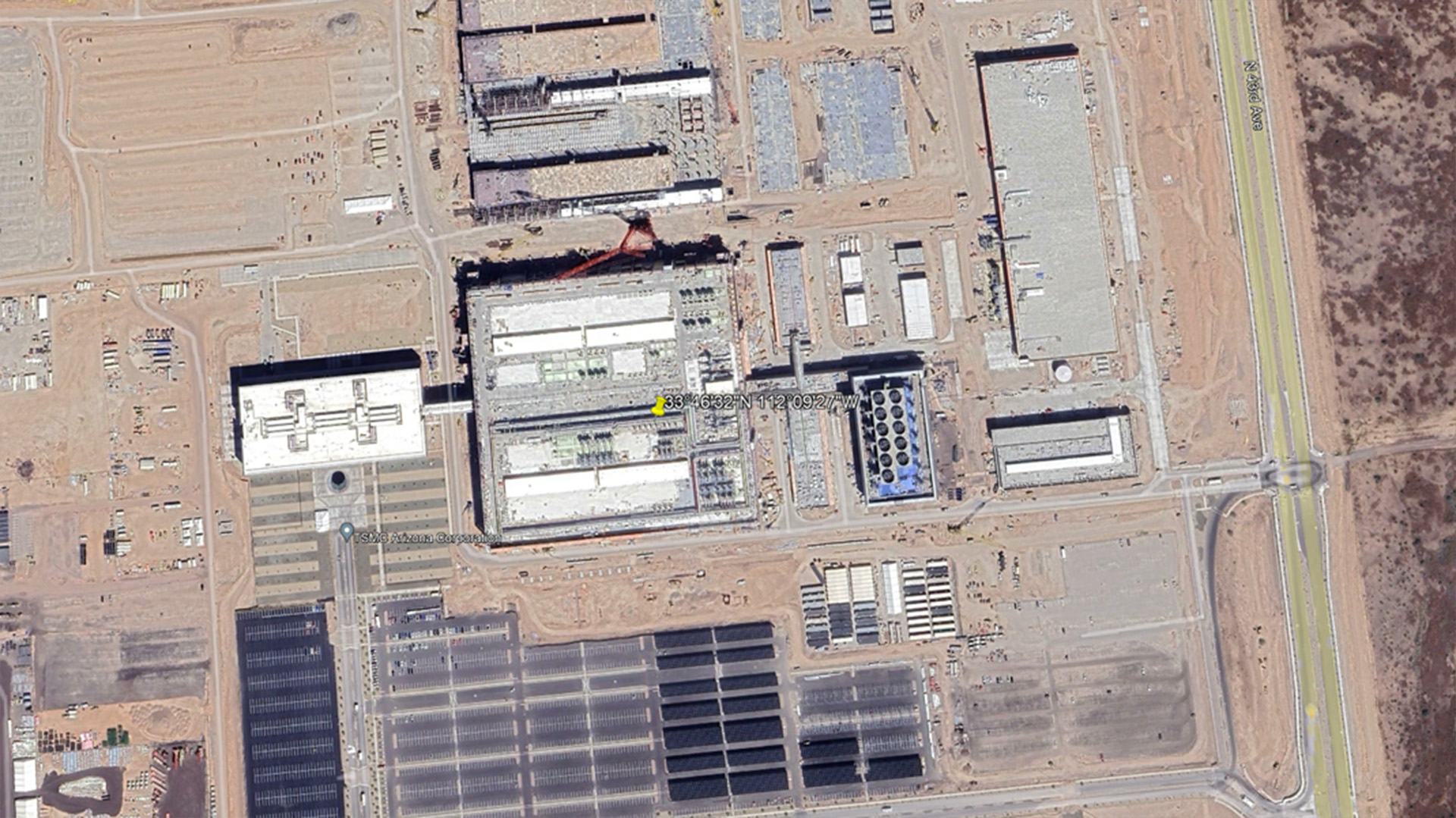
President Biden has signed a preliminary deal with TSMC, the world's largest chip manufacturer, to hand the Taiwanese company billions of dollars of CHIPS funding. In return, TSMC will commit to building high-performance computer chips on US soil, including a brand new third fab facility expected to use the latest lithographic technologies for the most performant processors.
"TSMC’s renewed commitment to the United States, and its investment in Arizona represent a broader story for semiconductor manufacturing that’s made in America and with the strong support of America’s leading technology firms to build the products we rely on every day," President Biden says.
"... semiconductor manufacturing and jobs are making a comeback."
TSMC is largely based in Taiwan—most of its fabs are located there—though it has already begun construction of a fab facility outside of Phoenix, Arizona. This facility should be online by the first half of 2025, according to the US Department of Commerce, and will produce 4nm chips.
You can see the progress being made on that initial fab, Fab 21, from the satellite imagery of the site in the interactive map below.
TSMC's second US fab will come online around 2028, and will produce both 3nm and 2nm chips.
Lastly, the most recent addition is the inclusion of another third fab facility, which will produce 2nm or more advanced process technologies, "depending on customer demand." It may be some time before this fab is up and running, however.
Big news: Today, we’re announcing a $6.6 billion preliminary agreement with TSMC.The investment will help bring the world’s most advanced leading-edge semiconductor technology to the US, build a third fab in Arizona, and create tens of thousands of jobs. https://t.co/bQYfVTjspQApril 8, 2024
"The proposed funding from the CHIPS and Science Act would provide TSMC the opportunity to make this unprecedented investment and to offer our foundry service of the most advanced manufacturing technologies in the United States," says TSMC chairman Dr. Mark Liu.
All in all, the three fabs should seriously bolster the United States' domestic chipmaking ability and shift away from a reliance on Taiwan for advanced computer chips.
Another beneficiary of the CHIPS Act is Intel. The company produces many of its own chips at its own fabs, and currently operates multiple in the US. It has major expansions of its own planned at a few of them, helped along by $8.5B in CHIPS Act cash. But it's still lagging behind TSMC. Intel's plan is to rapidly develop multiple process nodes, each one leapfrogging the last, to catch up. You might expect Intel to not be best pleased that its main competitor, and a company originating from Taiwan, is winning a big heap of cash from the US government, but Intel itself uses TSMC to produce many of its chips, including its Arc GPUs.
To round things off, the third player in global semiconductor manufacturing, Samsung, is also building a facility over in Texas, with some ($6B) CHIPS Act cash likely incoming.
All together, it does look like the US' plan to shift some of the global semiconductor production away from Asia and onto US soil is working. It just had to start throwing money in the right directions.




.jpg?w=600)


